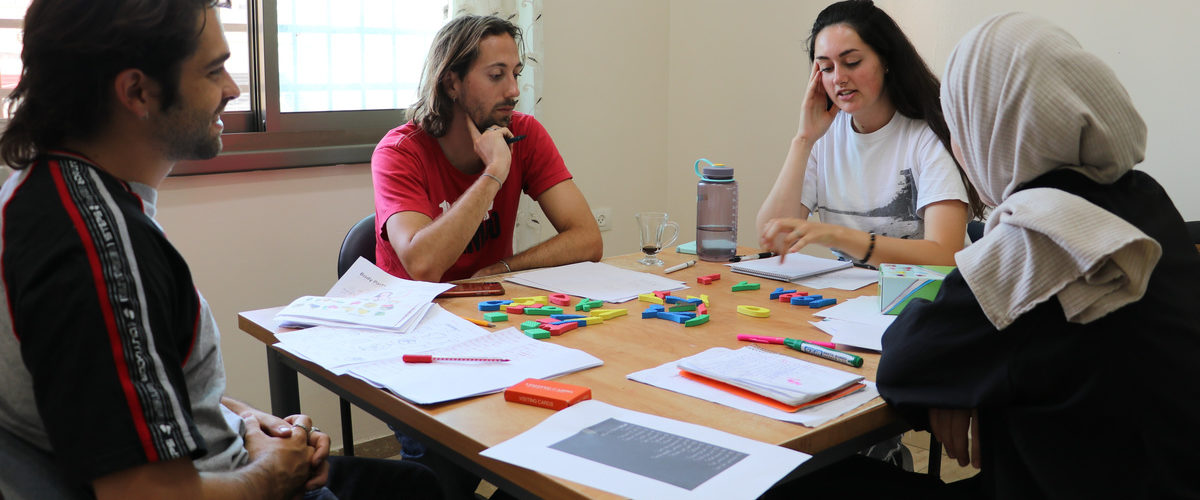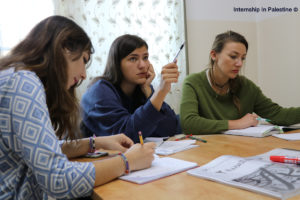Intensive Palestinian Arabic Program: Intern in Palestine is a great place to enroll in an Arabic program. We are one of the best Arabic language schools in Palestine. We are located in Hebron, an inexpensive city in the West Bank. This is an ideal location for studying in one of our intensive Ammiya Arabic programs. Ammiya Arabic is a dialect of Levantine Arabic that is spoken across Syria, Lebanon, Palestine, and Jordan.
Hebron is also under Israeli Occupation. Therefore, if you want to see the Israeli-Palestinian conflict firsthand up close, this is the place to go. Despite this, the city is relatively safe; you can roam the streets at night without worry. Conflicts tend to localize themselves to a specific region. So, if you’re smart about it, you can simply avoid them. As a foreigner, you will get exclusive access to some locations that not even Palestinians can.
Palestinian Arabic Programs for 2025/2026
Internship in Palestine is pleased to announce that applications are now being accepted for our 2025/2026 Palestinian Arabic Programs. These include Intensive Palestinian Arabic Courses, Summer and Winter Palestinian Arabic Programs, and Online Palestinian Arabic Lessons. Students have the chance to study 20 hours of instruction per week. With this format, students can quickly acquire Arabic skills and complete a full 80-hour course in just four weeks.
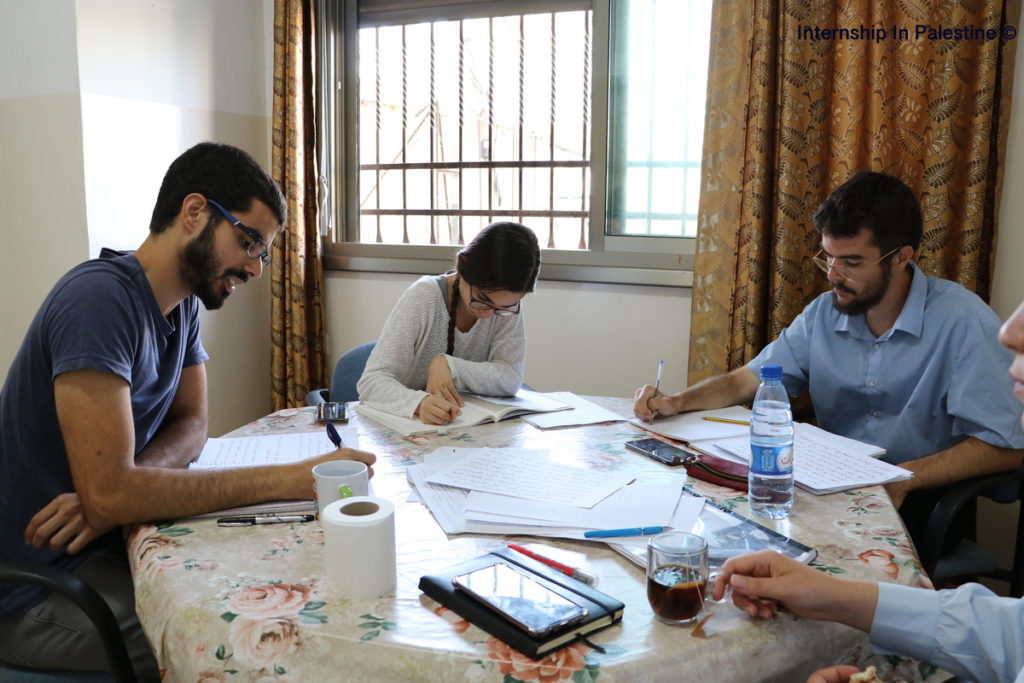
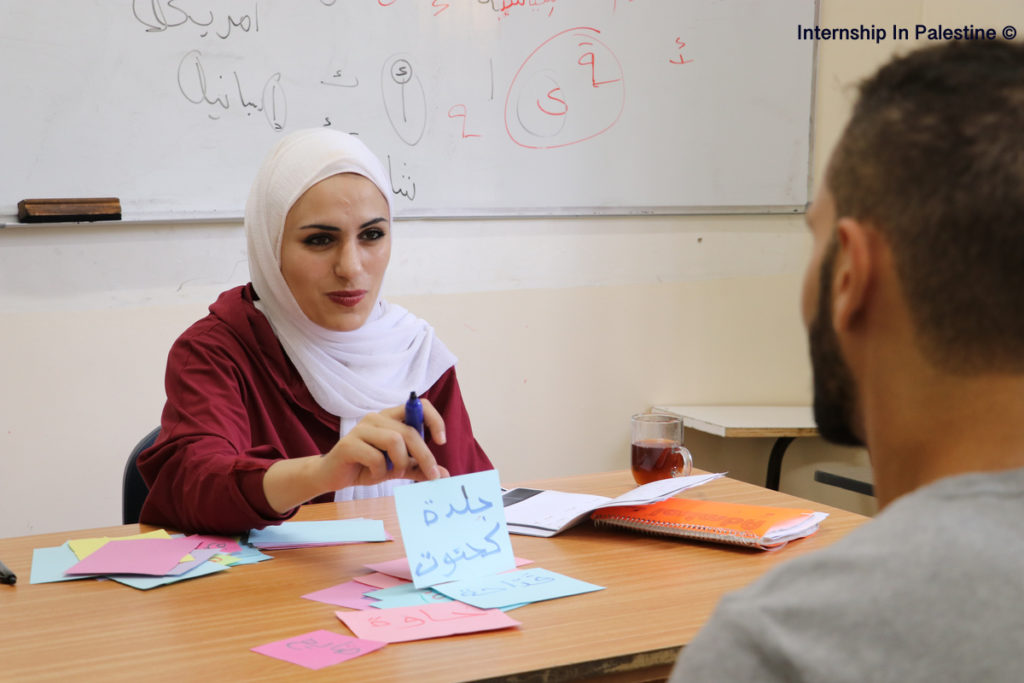
We are excited to offer these enriching opportunities and look forward to supporting you on your Arabic language learning journey in 2025/2026.
Table of Contents
Why Study Palestinian Colloquial Arabic?
Intern in Palestine welcomes you to join any of their Palestinian Arabic Language Programs in the West Bank. It is an excellent opportunity for anyone interested in learning the colloquial Palestinian dialect of Arabic. This connects with the larger Palestinian diaspora and will immerse one in the unique culture of Palestine and the Levant. These programs are also ideal for people who want to learn about the region’s rich history and culture. It’s also ideal for those who desire a deeper understanding of Palestine’s current predicament, and better create impactful relationships.
Students, recent graduates, working adults, retirees, and anybody in between are all excellent candidates for the Study Palestinian Arabic Program. This program will be entertaining and instructive for anybody who wants to learn more about Palestine and the Levant. Additionally, it’s great for those who want to travel around the Levant, further their professional careers, discover their heritage or just learn more. We particularly encourage university students to apply. This is because Intern in Palestine can also offer academic credit thanks to our collaboration with the Palestinian Educational Authority.
Programs Structures
Beginner, Elementary, Intermediate, and Advanced levels of Palestinian Colloquial Arabic language courses are all available at Intern in Palestine. For each level, the Center also provides both intense and non-intensive versions. Saturday through Thursday are the days of the week when language classes are provided. Fridays are the only days the Center is closed. The level and intensity of the chosen program will determine the scheduling.
However, generally speaking, classes are held three days per week for students in non-intensive programs and five days per week for those who are studying intensely. Those who want to work with Intern in Palestine in a volunteer or community service role will have the choice to sign up for 3 hours of free weekly intensive Arabic courses.
What Makes Palestinian Colloquial Arabic Special?
Palestinian Arabic is a regional Arabic dialect that is indigenous to Palestine and the larger Palestinian diaspora. It is one of the most widely spoken and identifiable dialects of Arabic. Indeed, there are over 13 million native Palestinian Arabic speakers worldwide! It also has one of the richest and most diversified cultures in the whole world. This is due to its lengthy history, unique geographic location, and religious significance. Palestine has hosted at least five significant empires. This has situated it at the confluence of many continents, including Europe, the Middle East, Africa, Asia, and the Mediterranean. Palestinian Colloquial Arabic is well-known and extensively spoken due to its importance in one of the most significant locations in the world.
Levantine Arabic is the regional dialect of Arabic spoken throughout the Levant. It is the parent language of Palestinian Colloquial Arabic, which is a sub-dialect. In larger definitions, this region may also include Cyprus, Turkey, Egypt, and a tiny piece of Iraq. The Levant situates itself in the Eastern Mediterranean of the Middle East and often includes Lebanon, Syria, Jordan, and Palestine. The Levant has a population of 44.5 million, representing a wide range of cultures and ethnicities.
Palestinian Arabic is also the best dialect for anyone who wants to read more Arabic literature. It can also be used professionally because it is very similar to Modern Standard Arabic, the standard version used for writing and official reasons. Learning Palestinian Arabic is one of the finest methods to integrate into the Arabic-speaking community, regardless of your situation.
Variants of Palestinian Dialects
While being a sub-dialect of Levantine Arabic, Palestinian Colloquial Arabic can vary considerably, even within villages. Palestinians’ regional and social backgrounds have a significant impact on the dialect they speak. Urban (madani), rural (falahi), and Bedouin dialects are the three primary different types. Even with all of these variations and sub-dialects that make up Levantine Arabic, spoken Palestinian Arabic is still easily distinguishable throughout the Arab diaspora and in all Arabic-speaking nations.
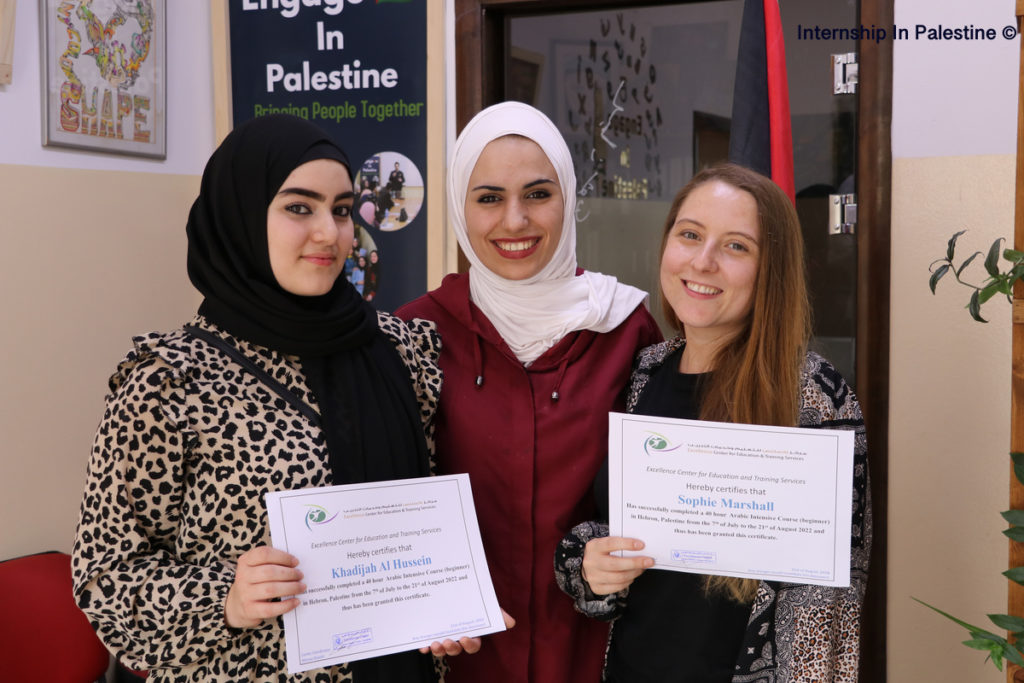
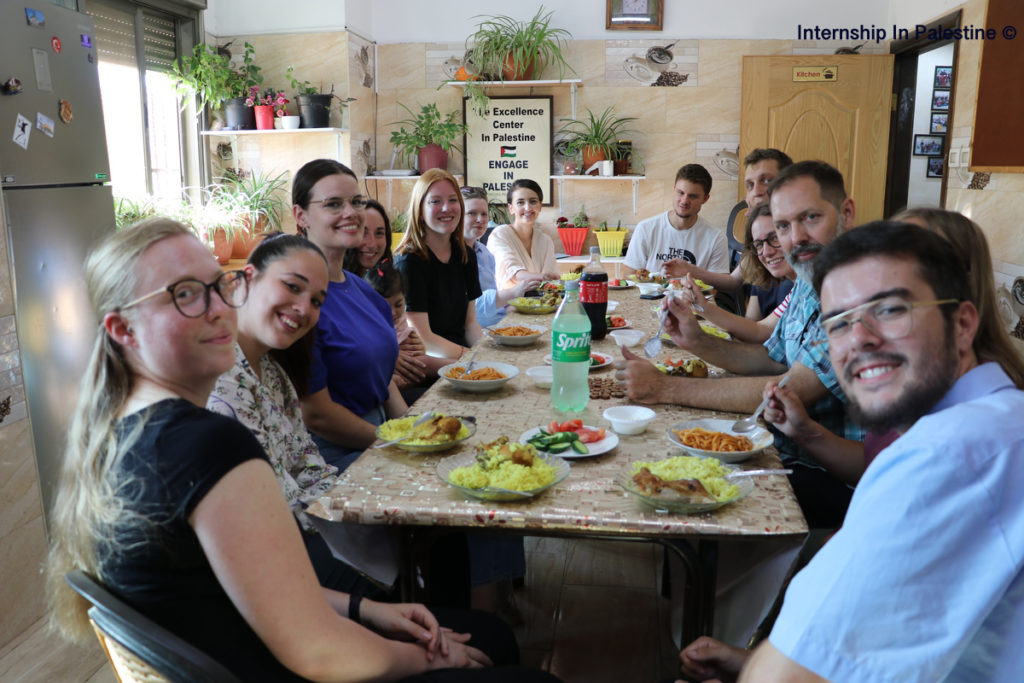
1. Madani: Palestinian Urban Dialect
The urban dialect of Palestine (Madani) is similar to the northern Levanitinan Arabic that is spoken in Lebanon and Syria. The “hamza” pronunciation of the Arabic “qaf” sound makes the urban accent most famous.
2. Falahi: Palestinian Rural Dialect
Arabic is spoken by farmers or peasants (falahi). It has a close connection with rural dialects in Lebanon and the outer southern Levant. It is easy to distinguish between male and female plural pronouns.
3. Bedouin: Old Palestinian Arabic
Bedouin Arabic originates in the deserts of the Middle East and is most commonly spoken in the Gaza Strip, Hebron, and Jerusalem. It is fairly simple to distinguish them from any other dialect in Palestine. This is because of their distinctive vocabulary and preservation of interdental consonants. The Bedouin dialect is the oldest in the region and is still in use and spoken by Bedouins today.
Advantages of the Intensive Palestinian Arabic Program:
- Gain knowledge of one of the Arabic dialects that is most often spoken and understood
- Travel around the Levant with ease
- Language can also help you understand more about Palestine’s complex history and culture
General Information about Palestinian Arabic
| Number of Native Speakers | Approximately 13 million |
| Language Family | Afro-Asiatic > Semitic |
| Dialects | Fellahi, Madani |
| Writing system | Arabic alphabet |
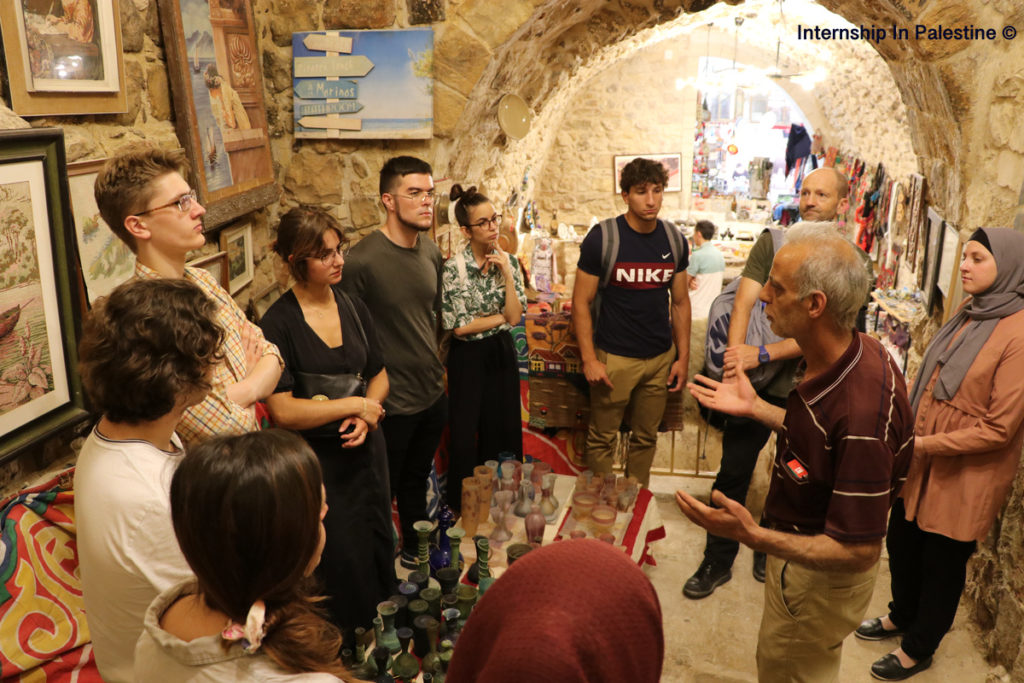
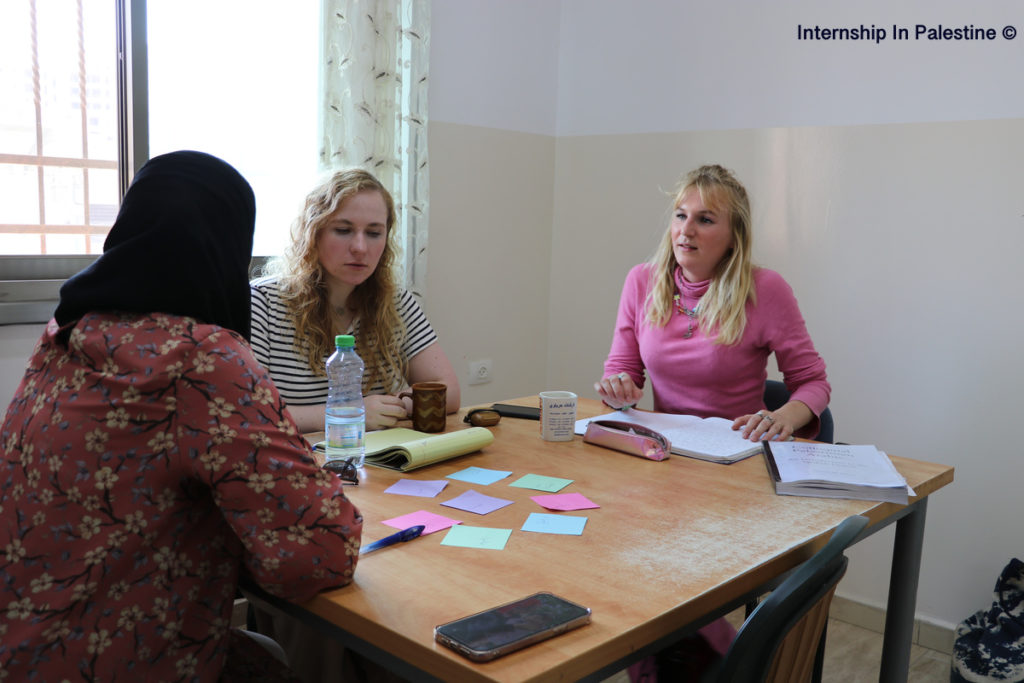
Specific Course Information
The Study Palestinian Arabic Program offers 4 different course levels, each with a choice of intense or non-intensive course sessions. The range of Palestinian Arabic Language courses is intended to provide students with the widest possible range of learning alternatives while also being specially crafted to meet their exact language requirements. Intern in Palestine’s courses are all created to fully immerse students in the Arabic language and culture while also preparing them for the lifelong endeavor of acquiring a second language! You may see a list of the courses offered in this program below.
| Course Level | Beginner |
| Elementary | |
| Intermediate | |
| Advanced | |
| Pace | Non-intensive |
| Intensive | |
| Style | Private in-person |
| Online virtual |
Course Levels Available
Beginner
Students with absolutely no prior knowledge of the Arabic language are ideal for the Beginner course. The Arabic alphabet, writing systems, principles of grammar, phonetics, common vocabulary, and everyday expressions are just a few of the key components that this course will present to the students. The Beginner Palestinian Colloquial Arabic course will provide students with a strong linguistic foundation to learn spoken Palestinian Arabic. From there, they may delve into the rich, diverse, and continuously evolving world of spoken Palestinian Arabic.
Elementary
This course aims to build on the student’s existing understanding of the Arabic language at the fundamental level. This calls for the inclusion of new vocabulary and a mix of grammatical rules that are a little more sophisticated in the curriculum, in addition to frequent reading, writing, and speaking assignments. Students who complete this course will be able to communicate, read, and write about everyday topics. This includes topics like shopping, asking for directions, and expressing preferences. For people who have taken beginner Arabic classes before but wish to focus on learning the Palestinian dialect, the elementary course is an excellent option.
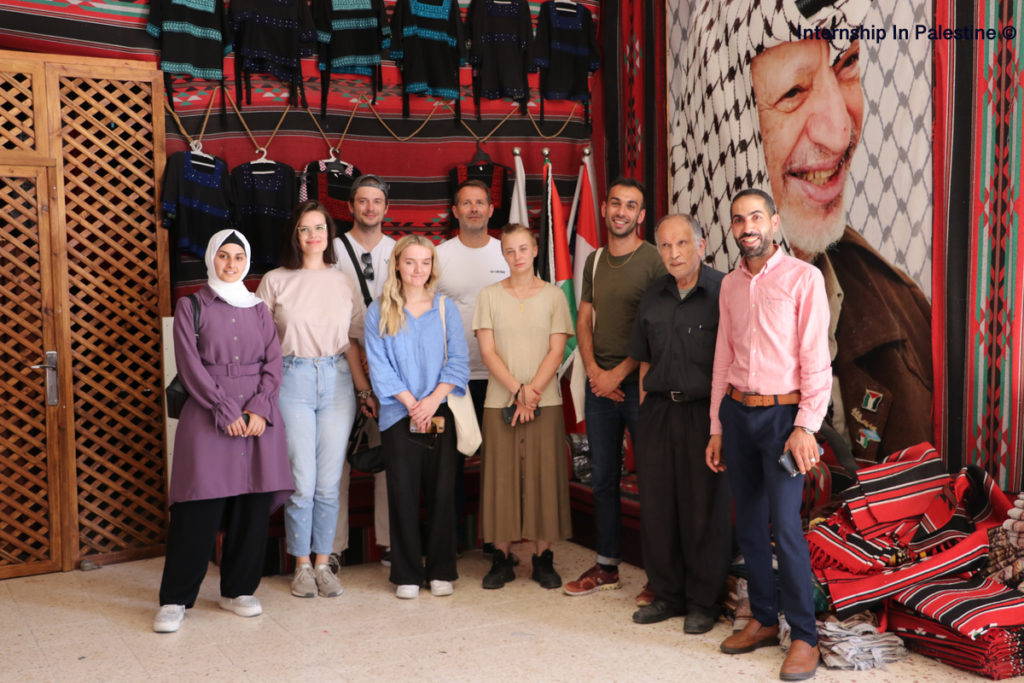
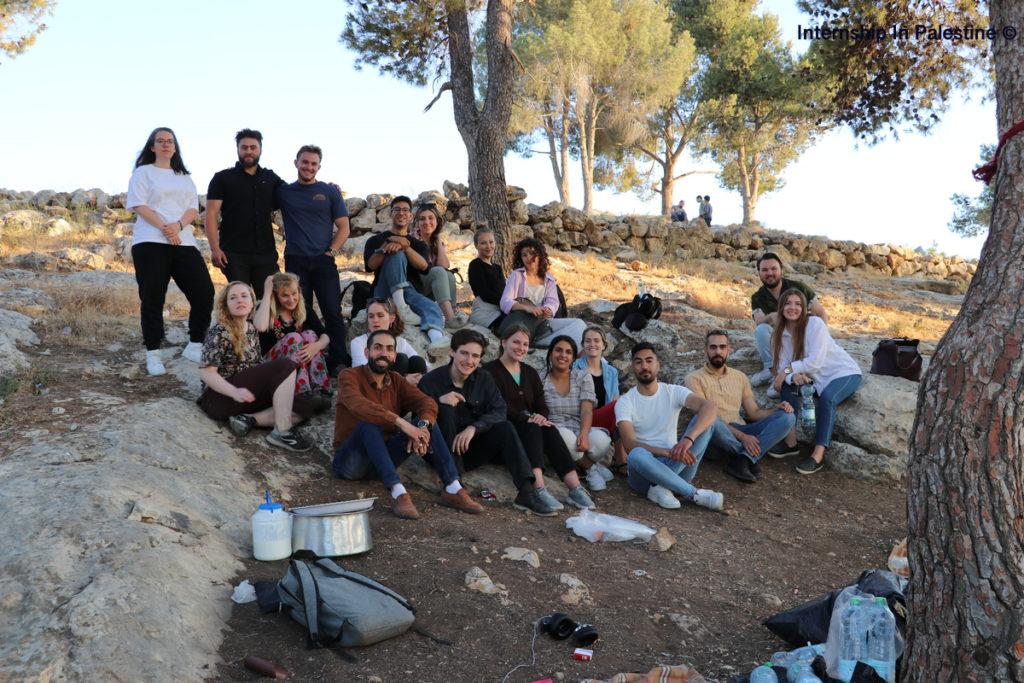
Intermediate
Students will be introduced to a more intensive curriculum in the intermediate course than in the previous levels. This will involve traveling within the Palestinian neighborhoods of Hebron to interact with locals and carry out daily duties. In class, students may purchase items from a Palestinian market or place restaurant orders. They may also discuss their views on certain subjects or participate in other informal activities. Additionally, the class will introduce themes that address specific concerns. These concerns could be politics, art, and culture, and they will gain the terminology required to further discuss these topics clearly and knowledgeably.
Advanced
This course will incorporate all of the previous course curricula. It will retain the immersive aspect of the Intermediate level while also extending into more advanced reading, writing, and spoken content. In addition, students will perform research on several topics in the Hebron community. Students will be able to build a strong grasp and grammatical proficiency in Palestinian Colloquial Arabic by combining all of these approaches and materials. Students will be able to explain their views and opinions on difficult issues. These issues include politics, history, the environment, and Palestinian arts after completing this course.
What is the Difference Between Course Intensities?
Intensive and non-intensive courses provide varying degrees of immersion and challenge. We advise students who are interested in a long-term program of 1-3 months to enroll in a non-intensive course. This will give them plenty of in-class instruction (roughly 12 hours per week). They will still have plenty of time to explore the city of Hebron and fully immerse themselves in Palestinian culture.
We advise enrolling in the intense Arabic classes for individuals wishing to complete their studies in less than a month. This level will involve 20 hours of teaching per week in addition to additional allocated homework and extracurricular activities. Anyone seeking to completely immerse oneself in Palestinian Colloquial Arabic while simultaneously living in Hebron can enroll in the Arabic language immersion program.
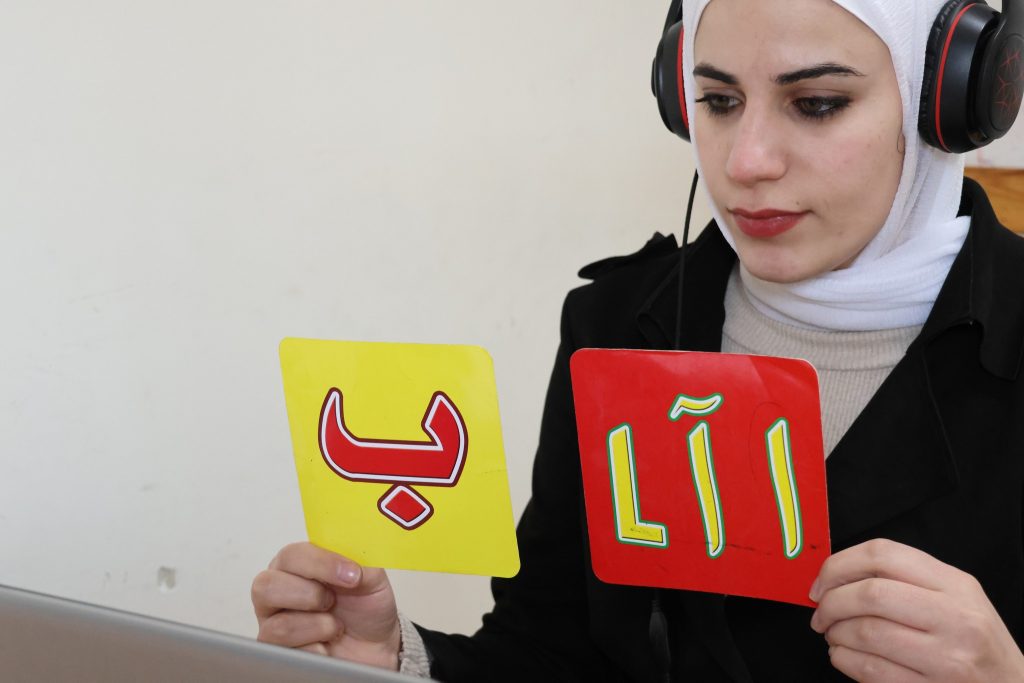
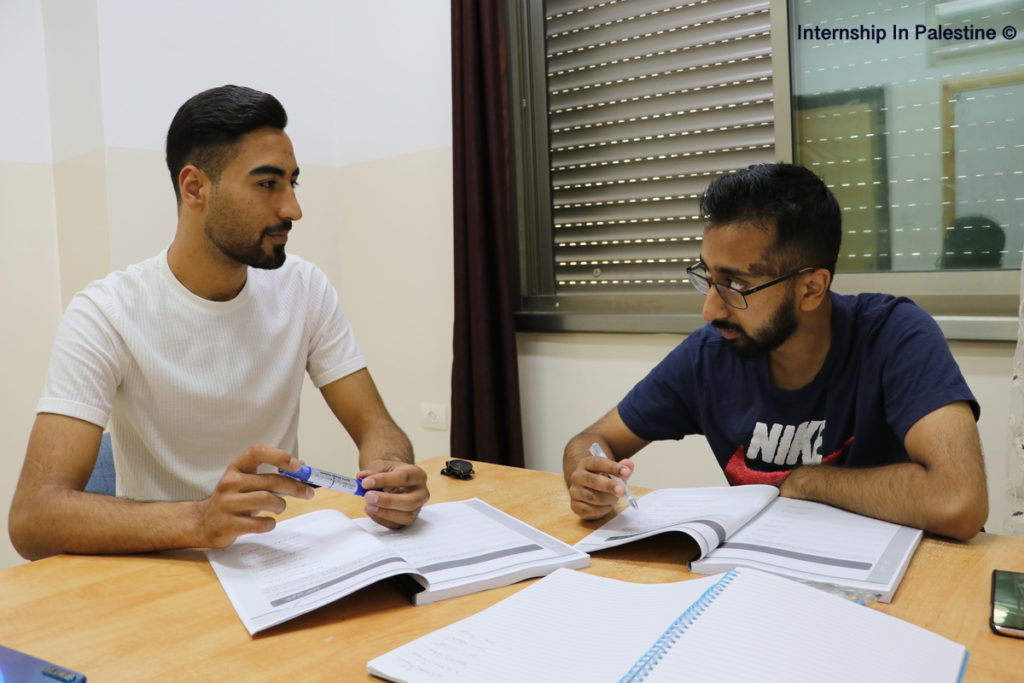
Online Palestinian Arabic Programs
We provide online intense and non-intensive Palestinian Arabic courses taught by certified Palestinian teachers and instructors in addition to the Arabic programs provided in Hebron. You can click on this link to learn more about these programs: Levantine and Palestinian Arabic online lessons.
Which Course is for Me?
Intern in Palestine offers a free placement exam to assess students’ Arabic language proficiency in four important areas: speaking, reading, writing, and listening. If you’re having trouble picking which course to enroll in, take it. If you have any inquiries about the difficulty or intensity of the courses, we are always delighted to speak with you. You may find our contact information, our Facebook page, and links to our other social media pages at the bottom of this page.
Competitive Pricing
Intern in Palestine offers a reasonably priced option compared to other study abroad options. The fees listed include accommodations, breakfast for students each day of class, operating expenditures, and group excursions in addition to the language classes and housing. Weekly tuition fees are as follows:
- 370 Euros for non-intensive courses
- 500 Euros for intensive courses
Qualified Teachers
The instructors and employees at Intern in Palestine take pleasure in the fact that they are all native Palestinian Arabic speakers. However, a large number of our instructors hold a variety of degrees in subjects that are closely connected. These include subjects like teaching non-native speakers of Arabic, teaching Arabic as a second language, Arabic cultural studies, Arabic literary studies, and many more.
A Unique Experience
The Center welcomes volunteers and students from all over the world. However, many individuals have only a cursory awareness of a culture that dates back thousands of years and are ignorant of the variety inside Palestine. Students participating in this program will experience a singular experience that guarantees a shift in viewpoints. It will also refute any preconceptions they may have about Palestine and the larger Arabic-speaking world. Moreover, the chance for students to live in Hebron with a Palestinian host family would provide them with an unrivaled degree of Arabic immersion, opening up numerous chances for cross-cultural study and linguistic immersion.
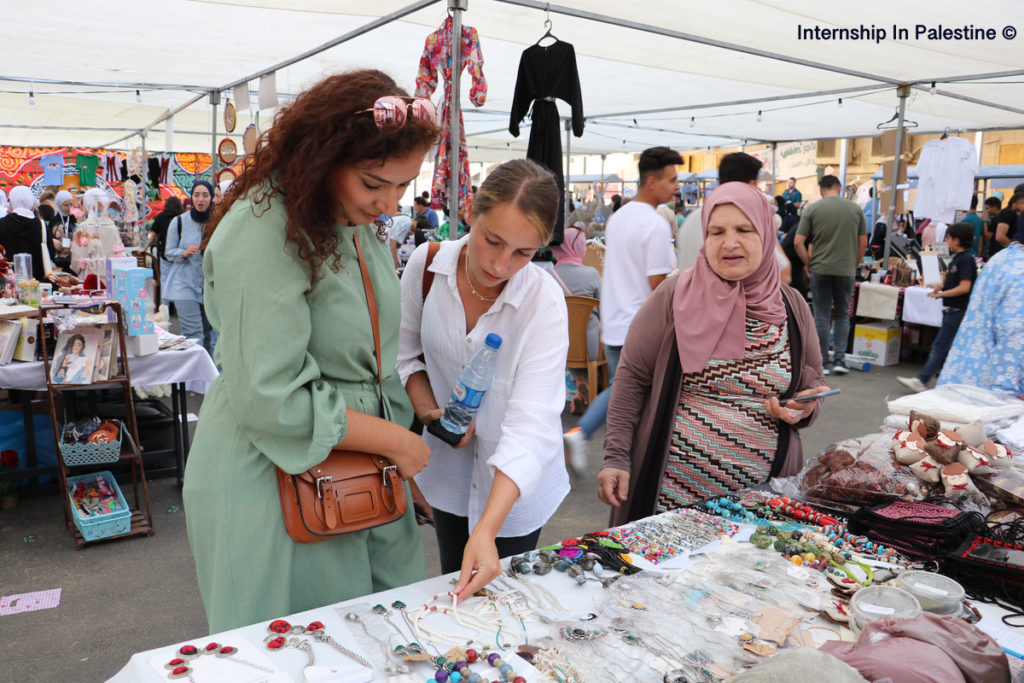
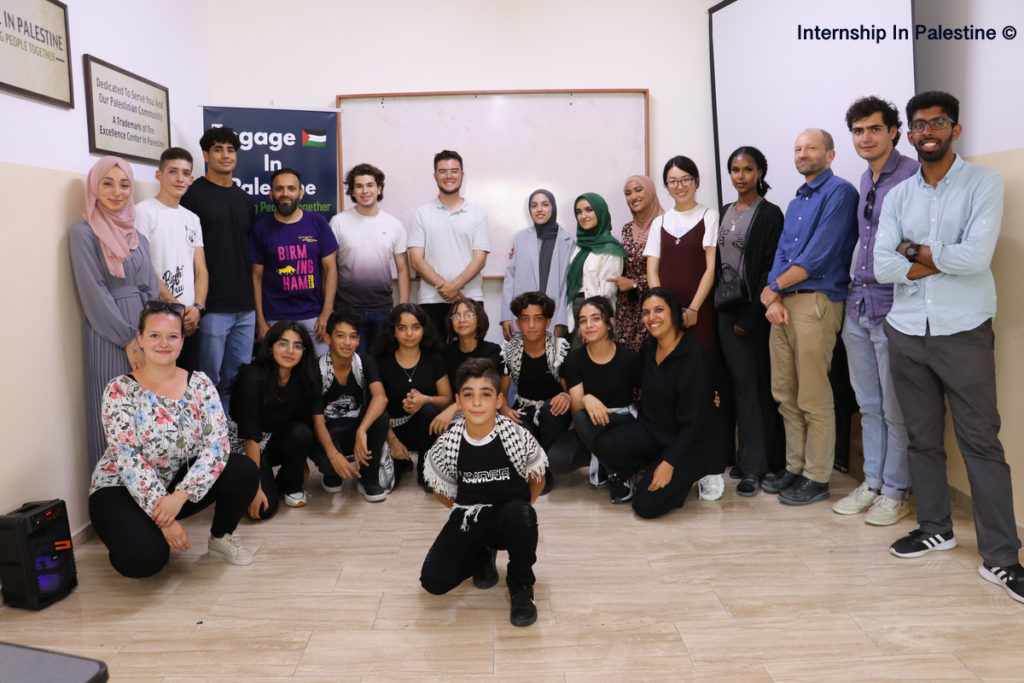
Are the Courses Taught in English?
The simple answer is yes, we design all our Arabic courses with English speakers in mind. However, as the course level increases, we use less English in the classroom for immersion purposes. Please bear in mind that to properly immerse themselves in the experience, students will need to use their Arabic as well as their talents to the best of their ability when traveling through Hebron.
General Information Regarding Courses
| Colloquial Palestinian Arabic Courses | Intensive Program | Non-Intensive Program |
| Program Duration | 1-12 weeks | 1-12 weeks |
| Lessons Per Week | 20 | 12 |
| Days Per Week | 5 | 3 |
| One Teaching Hour | 45 minutes | 45 minutes |
| Average Class Size | 1-3 students | 1-3 students |
| Maximum Class Size | 3 students | 3 students |
| Program Levels | Beginner Elementary Intermediate Advanced | Beginner Elementary Intermediate Advanced |
| Lesson Periods | Morning 8:30-12:30 Afternoon 12:30-16:00 | Morning 8:30-12:30 Afternoon 12:30-16:00 |
| Program Fee Per Week* | 500€ (Confirm Prices Here) | 370€ (Confirm Prices Here) |
| Start/End Dates | Flexible | Flexible |
| University Credit | Available | Available |
Living with a Palestinian Host Family
The most important aspect of this program takes place entirely outside of the Center. Students will get the chance to live with a host family who is from Palestine while they are in Hebron! In addition to giving students a unique glimpse into Palestinian culture and daily life, this invaluable experience will immerse them in the regional dialect of Arabic. Additionally, students will participate in family dinners, go to various cultural events, and learn about Hebron’s everyday life.
Every previous participant has reported that their time spent residing with their various host families was equally as enjoyable, rewarding, and educational as their time spent in school. Cat, a participant from the UK, remarked the following:
“During my stay here, I was able to immerse myself in the local culture and learn a lot about life in Palestine, which was [just] as important to me as the academic side. The people of Hebron are overwhelmingly generous and friendly, making my stay here a wonderful experience.”
We hope that your time spent with your host family will be just as transformative as it has been for prior visitors.
Why Hebron, Palestine?
Students studying Levantine Arabic in Hebron will fully immerse themselves in everyday life and the distinctive culture of Palestine while honing their Arabic language skills. They will also get to experience the gratifying process of acquiring the local dialect.
Students will naturally engage with the locals while living in Hebron as they use their Arabic regularly at local businesses, cafés, restaurants, and shops. During the program, students will frequently meet a variety of locals by coincidence. They will become friends with local staff members and converse with taxi drivers as they navigate Hebron and Palestine more extensively. During these exchanges, students shouldn’t be self-conscious about their Arabic language abilities. Palestinians value the effort that outsiders make to learn their language and traditions.
Intern in Palestine provides its participants with an unparalleled opportunity to study spoken Levantine Arabic. It will immerse students in the heart of Arabic culture and language. Students use everything in their surroundings, from street signs to chats with locals, to build their Arabic abilities. They frequently express astonishment at how rapidly they can learn and successfully use their Arabic in real-world circumstances. For students to develop and expand their vocabulary, fresh possibilities arise every day.
Students will get the chance to travel around Palestine and see the numerous historically, culturally, and politically significant sites this area has to offer in addition to living in Hebron. Intern in Palestine itself organizes frequent field trips to neighboring cities, refugee camps, workshops, and nature reserves. This is so that students may comprehend the complexities of Palestine.
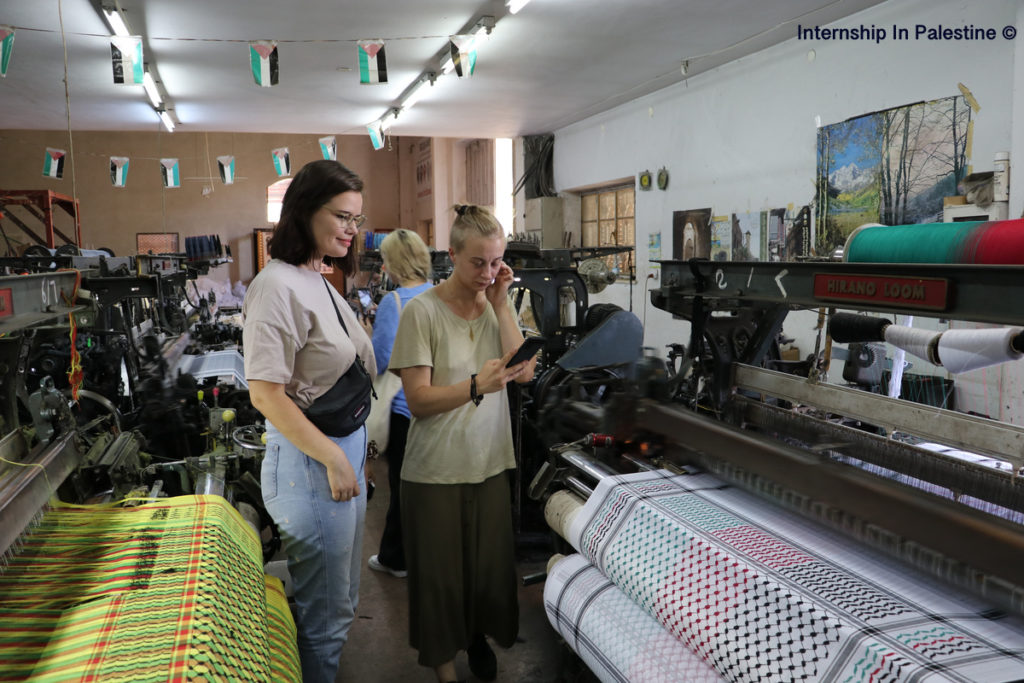
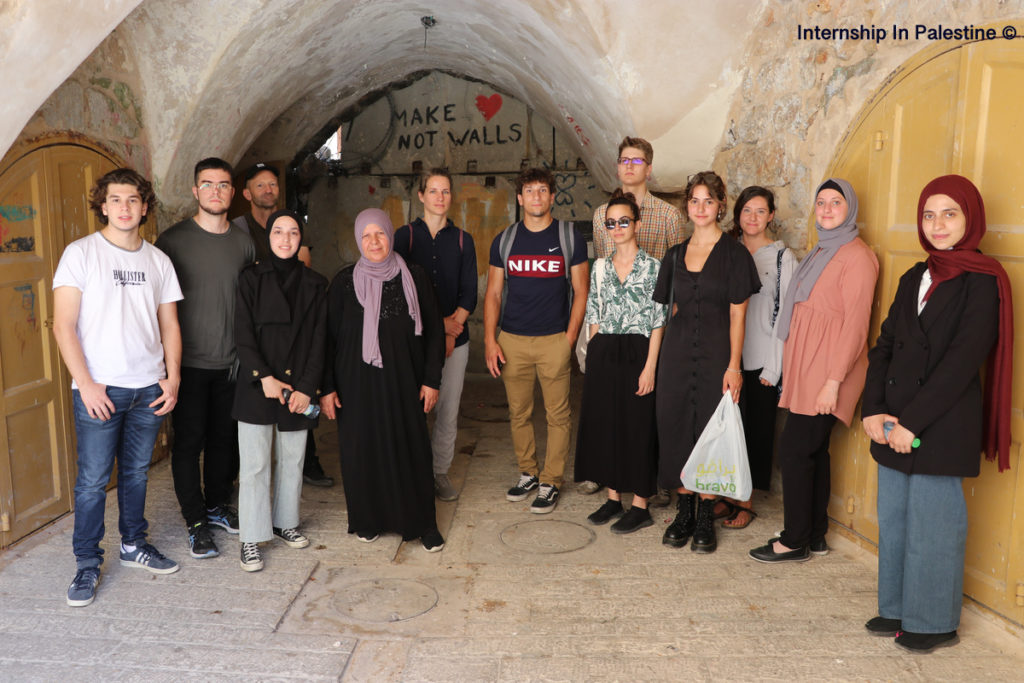
Who is Eligible to Apply?
As already indicated, Intern in Palestine does not discriminate based on any category. This includes race, ethnicity, religion, gender, sexual orientation, or any other category. Intern in Palestine has a long tradition of accepting individuals from all over the world, from all walks of life, and all backgrounds and identities. Everyone is welcome!
Previous participants of Intern in Palestine have hailed from the following countries: Australia, Austria, Belgium, Brazil, Bulgaria, Canada, China, Croatia, Cyprus, the Czech Republic, Denmark, Estonia, Finland, France, Germany, Greece, Hungary, Ireland, Italy, Japan, Latvia, Lithuania, Luxembourg, Malta, Mexico, the Netherlands, New Zealand, Norway, Poland, Portugal, Romania, Singapore, Slovakia, Slovenia, South Africa, South Korea, Sweden, Switzerland, the United Kingdom, and the United States!
Is There Any Criteria for Studying in Palestine?
There are just three main requirements we ask of participants. The first is that students enrolling in the Study Palestinian Arabic Program must be between the ages of 18 and 70. However, the director of the Center may overturn this age requirement with special approval. Secondly, the curriculum utilizes English and/or Arabic as the two main languages. Therefore, we expect that all potential students have a working understanding of both. Finally, we encourage everyone to approach each program activity with a positive outlook, an open mind, and a desire to learn.
General Criteria for Participants
- 18-70 years of age (unless granted special permission by the Center’s director)
- Colloquial fluency in Arabic and/or English
- A positive outlook to foster constructive learning
Reviews and Awards
Internship in Palestine has been honored with several prestigious Community Awards and recognized as the Best Language School and Top Volunteer and Internship Program Provider for 2019, 2021, 2022, 2023, and 2024. For more details, please visit our profiles on GoOverseas.com and GoAbroad.com.
- +860 reviews (96%) on gooverseas.com
- +175 reviews (96%) on goabroad.com
- Participants’ video testimonials
Conclusion
In conclusion, our Arabic immersion programs in Palestine are for anybody who wants to study spoken Palestinian Arabic, deepen their understanding of Palestinian history and culture, and live in a vibrant and busy city in Palestine. This Arabic program promises to be a life-changing and enlightening experience. It gives you the chance to formally learn Ammiya Arabic while residing with a Palestinian host family.
For those who want to learn Arabic, get in touch with the greater Palestinian diaspora, and become fully immersed in the unique customs of Palestinian culture and the Levant, Intern in Palestine in the West Bank provides a unique opportunity. People who wish to gain a greater knowledge of Palestine’s present situation, learn more about the region’s rich history and culture, and build more meaningful connections can take advantage of these programs.
One of your life’s most rewarding journeys awaits you at Intern in Palestine. If you would like to join our family here in Hebron, we at Intern in Palestine would be more than glad to welcome you. Start your language adventure by applying right away!
How to Apply?
Please send an email to Info@ecpalestine.org if you are interested in joining our Study Palestinian Arabic Program. Within one to three business days, we should reply to your initial query.
Please write “Study Palestinian Arabic” in the email subject line, and we’ll get back to you with an application form attached. To start the onboarding procedure, please fill out this form and send it back to us.
Find Us Online
Do you have questions about our work? Contact us:
Email: info@ecpalestine.org
WhatsApp:+972 599 479 880
Website: https://internshipinpalestine.org/
EC Website: https://excellencenter.org/
Instagram: https://www.instagram.com/excellence.center
Facebook page: https://www.facebook.com/ExcellenceCenter
Facebook account: https://www.facebook.com/RafatECHebron
Watch us on YouTube: https://www.youtube.com/channel/UCsQSLdFZWZcBm6Uj0XMYuKg
Visit and Explore Palestine: https://www.facebook.com/ExplorePalestine
